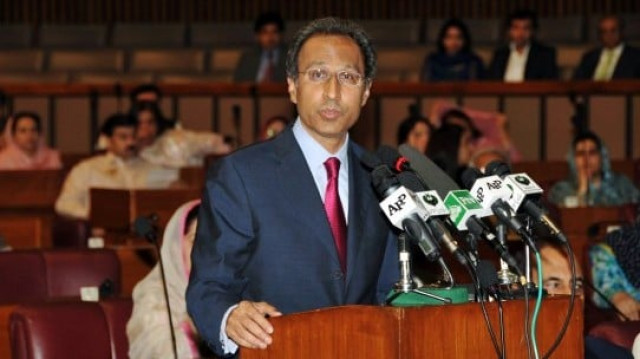Budget 2011-12: Same old story
The allocations in the federal budget for fiscal 2011-12 are more or less in line with those of previous years.

During 2010-11, according to figures from the government’s Economic Survey, education spending was just two per cent of GDP and health expenditure a mere 0.8 per cent. Given that our literacy rate is among the lowest even in South Asia, we are denying millions of our children their right to an education and millions of poor and impoverished Pakistanis their right to a reliable and affordable healthcare system so that they can have state-of-the-art weapons.
A country’s best defence lies not in buying more weapons and in building a nuclear arsenal but in educating its children, in imparting its adolescent skills that make them more productive workers, and in providing its citizens clean drinking water, and an environment in which they can go about living their lives in peace and without fear of harm to their person or property.
It is no coincidence that the most powerful countries in the world militarily – America, and increasingly China – also happen to be the largest economies and have a workforce that is educated and skilled. One can only hope that this fact will be realised by those who draw up the federal budget in Islamabad and by those at the helm of the military establishment in Rawalpindi.
It should also be borne in mind that the projected allocation of Rs495 billion for 2011-12 will, in all likelihood, not include military pensions. In fact, given that pensions have been increased by 15 to 20 per cent, this component of what should also be counted as part of defence expenditure will also rise substantially.
Some other aspects of what Finance Minister Abdul Hafeez Sheikh said warrant comment. The first has to do with taxation. Clearly, even a layperson would know that this is the base on which any country’s budget is built upon for without it there can really be no spending on the citizenry. In this context, the finance minister said that the government intends to bring 2.3 million more people into the tax net. This would mean more than a tripling of the existing number of taxpayers and though well-intentioned, seems a very ambitious suggestion especially given it is unclear how this is to be achieved. At the very least, it will have to be accompanied by a major overhaul of the Federal Board of Revenue in terms of its capacity to collect taxes in a fair manner without abetting tax evasion. This hasn’t happen in the past many years so unless Mr Sheikh has a magic wand, one remains a sceptic.
As for the public sector development programme, its allocation has been increased to Rs730 billion but here too it may well be the case, like 2010-11, that it will be cut mid-year because of fiscal burdens created elsewhere. In any case, the minister said that the cost of the floods of 2010 was close to $10 billion so that would have required significant allocations for the affected for the 2011-12 as well – that has however not happened.
Finally, the fiscal deficit. For 2010-11 it was estimated to be well over five per cent of GDP and the finance minister has said that the government will aim for four per cent for 2011-12. As a consequence of this, projected subsidies will reduce by almost 58 per cent compared to the previous year, a massive reduction by any account. Other than having significant societal consequences, since most subsidies disproportionately help the poor, how is this going to be achieved given that a culture of austerity is yet to take root in most state institutions?
Published in The Express Tribune, June 4th, 2011.















COMMENTS
Comments are moderated and generally will be posted if they are on-topic and not abusive.
For more information, please see our Comments FAQ